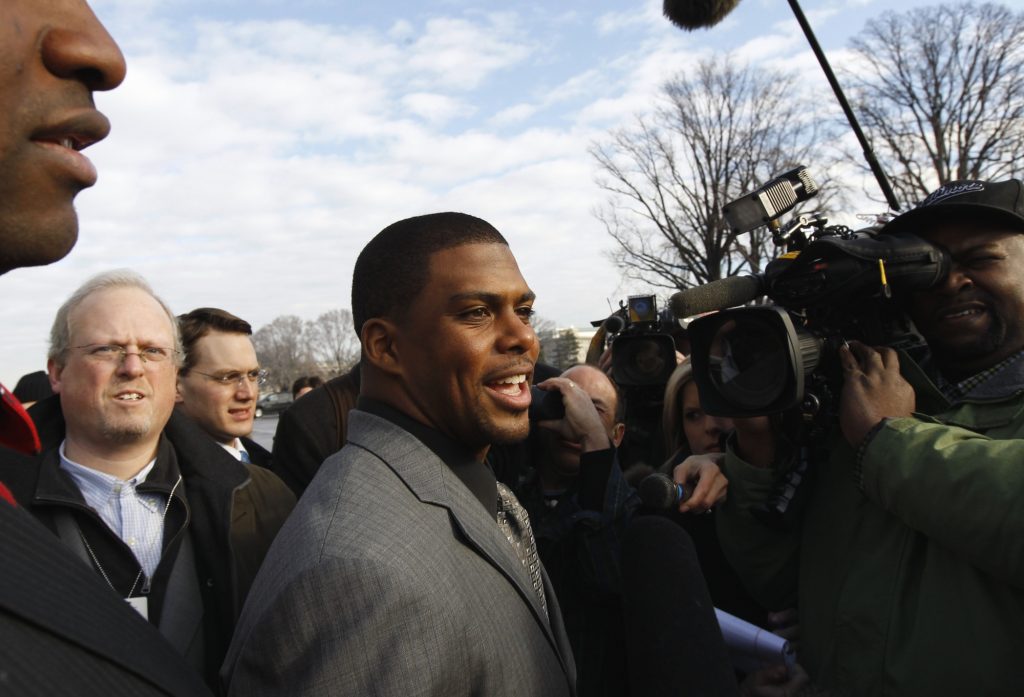(ThyBlackMan.com) The 2020 Democratic National Convention recently ended and without a doubt one of the main topics was the presence of newly chosen Democratic Vice-Presidential nominee Kamala Harris. Over the past couple of weeks, there has been a lot of talk about history as it relates to Harris, who became the first Black woman and first Indian American to make the presidential ticket for a major party. However, it is important to point out that Harris is not the first Black woman to run for vice president.
It is critical that every American should be aware of the name, Charlotta Bass. Bass became the first Black woman candidate for the vice president back in 1952 and did so for the Progressive Party. Bass’ resume was incredible as she was an activist and the editor of The California Eagle, one of the country’s oldest Black newspapers. She was also anti-war and spoke about equal access to healthcare. Kamala Harris’ vice-presidential nomination also drew discussion because of her own history of tough legislation against Black and Latinx people including legislation that reported arrested, undocumented juveniles to Immigration and Customs Enforcement and punitive laws regarding previous convictions. In many ways, she is closer to those in the Republican Party than not. In much quieter news, Jason Wright made NFL history that also makes people wonder if it is worth celebrating at all.

Earlier this month, former businessman and former NFL player Jason Wright was hired by the Washington Football Team as their team president. He becomes the first Black team president in NFL history. The NFL recently celebrated its 100th season and has obviously been around for a while so Wright has made some major history and he was aware of it. He said, “What it tries to signal is that, at least in this organization, the hindrances that tend to be in place around Black talent in other places are breaking down and that should send a signal more broadly to the shift in culture that Dan and Tanya Snyder, Coach Rivera and myself are now trying to make.” It is credible that Wright decided to mention race when many times those who are in the process of making race-related history are reluctant to acknowledge that for numerous reasons.
Jason Wright’s background includes being a partner at McKinsey & Company, a global strategy and management consulting firm, and co-piloting McKinsey’s anti-racism and inclusion strategy and helping to create the Black Economic Forum. Unlike Kamala Harris, the questions around Wright’s historic position are less about his own history and more about the institution he represents. The Washington Football Team has faced an extremely turbulent several months including finally changing the team’s ridiculously racist and derogatory nickname after decades of controversy, major issues sexism and treatment of women around the organization’s culture for years, and significant discord between the team’s majority owner, Daniel Snyder, and some of the team’s prominent minority owners. Jason Wright will be working for one of the most notorious pro sports owners in the world, Dan Snyder, while replacing former team president Bruce Allen, who was considered the “least trustworthy” at his position in the NFL by NFL agents.
The most well-known Black NFL front office executive ever was longtime Baltimore Ravens general manager Ozzie Newsome. Like Wright, he was also a former NFL player but Newsome has left such an impressive legacy he could be chosen for the Hall of Fame for his executive work only despite having a Hall of Fame NFL playing career. Despite his fantastic success, Newsome consistently displayed humility and hard work in making the Baltimore Ravens, a top NFL franchise for two decades. The task for Jason Wright is even bigger as he joins an organization where the biggest issue is a culture of hostility and finger-pointing led by an arrogant, narrow-minded owner that has been a toxic place for a very long time.
Staff Writer; Mark Hines




















Leave a Reply